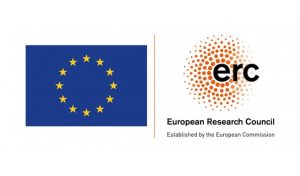Early in 2020, RusTrans ran a competition for translators of contemporary literary fiction from Russian to English. We offered support (up to the value of £1,000 per project) to a total of 12 projects in order to help the translator produce up to 10,000 words of a new translation. In return, we asked successful translators to update us over the next two years or so (until June 2022) on their publication journey – their successes and rejections, reader responses, editorial decisions and so on. Well, we have our winners!



.
We received a large number of entries, offering a wide range of exciting and challenging translation projects. We finally selected twelve (a total of fourteen translators, as two projects are co-translations), based on a variety of factors including author type (we were looking for as much diversity as possible), translator’s experience (we wanted a mix of experienced and newbie translators), publishable quality, and genre (again, we sought diversity). We regret that we were limited to twelve, and we wish the best of luck to the many excellent projects we could not sponsor.
Our twelve translators are as follows, in alphabetical order:
- William Barclay, with Bulat Khanov’s novel about an angry academic, Gnev.
- Michele Berdy, with various stories and a novella by Tasha Karlyuka.
- Huw Davies, with Dmitry Bykov’s historical novel June.
- Shelley Fairweather-Vega, with short fiction “Aslan’s Bride” by Nadezhda Chernova and “Black Snow of December” by Asel Omar.
- Annie Fisher and Alex Karsavin, co-translating Ilya Danishevsky’s queer modernist experimental novel Mannelig in Chains.
- Polly Gannon, with Sana Valiulina’s Soviet-Estonian historical novel, I’m Not Afraid of Bluebeard.
- Lisa Hayden, with Alexei Salnikov’s debut novel The Department.
- Alex Shvartsman, with K.A. Teryna’s science fiction novella The Factory.
- Isaac Sligh and Viktoria Malik, co-translating Viktor Pelevin’s novel iPhuck 10.
- Sian Valvis, with Narine Abgaryan’s semi-autobiographical novel of an Armenian childhood, Manunia.
- Sarah Vitali, with Figgle-Miggle (Ekaterina Chebotaryova)’s novel You Love These Films So Much.
- Lucy Webster, with Andrei Astvatsaturov’s satirical novel on Russian academia, People in Nude.
Congratulations to all, and we look forward to following your journeys and hosting extracts from your translations on our website as they progress! Follow us on Twitter @rustransdark or subscribe to our blog alerts in order to keep up to date with these twelve wonderful projects.
Meet the winning translators here!
Find out more about their translation projects here!
Our reasons for offering this seed-funding
During the period 2019-2023, the ERC-funded RusTrans team (Project No. 802437) will be researching dynamic processes in Russian-English literary translation. You can read more here. We want to gather data directly from active translators of Russian literature (into English) in order to answer questions such as the following:
- Which Russian literary authors and genres are most popular with translators?
- Which Russian literary authors and genres are most popular with publishers?
- How does a translator advocate for an author or a manuscript? To what extent does the translator act as an agent for the original Russian author?
- To what extent do market trends and conditions influence the success or failure of a translation pitch?
To collect our data, we plan to follow selected translators through the process of pitching and/or submitting a new translation to publishers in real time. This is why we are offering to kick-start original literary translation projects intended for publication. For example, if a translator wishes to publish a novel by a contemporary Russian author, we can fund the translation of the first chapter or chapters; we can also support the translation of selected stories from a short fiction anthology, if the translator intends to find a publisher for the entire anthology. In return, we invite translators to place the funded section of their translation on our project website if their intention is to use these to pitch the full-length text to publishers; we ask translators to provide regular updates plus a final report on how, whether, and where they place their work with a publisher. This is the information we will use in our research.